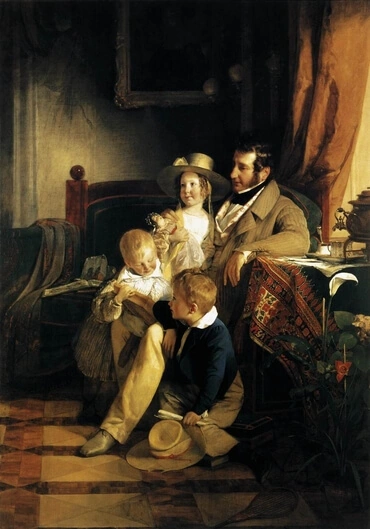1
PRENDETE guardia di mettere in opera tutti i comandamenti che oggi vi do, acciocchè viviate, e cresciate, ed entriate nel paese che il Signore Iddio vostro ha giurato a’ vostri padri, e lo possediate.
2
E ricordati di tutto il cammino, per lo quale il Signore Iddio tuo ti ha condotto questi quarant’anni per lo deserto, per affliggerti, e per isperimentarti, per conoscer ciò che è nel cuor tuo; se tu osserverai i suoi comandamenti o no.
3
Egli adunque ti ha afflitto, e ti ha fatto aver fame; poi ti ha pasciuto di Manna, della quale nè tu nè i tuoi padri avevate avuta conoscenza; per insegnarti che l’uomo non vive di pan solo, ma d’ogni parola procedente dalla bocca del Signore.
4
Il tuo vestimento non ti si è logorato addosso; e il tuo piè non si è calterito in questi quarant’anni.
5
Conosci adunque nel tuo cuore, che il Signore Iddio tuo ti corregge, come un uomo corregge il suo figliuolo.
6
E osserva i comandamenti del Signore Iddio tuo, per camminar nelle sue vie, e per temerlo.
7
Perciocchè il Signore Iddio tuo ti fa entrare in un buon paese, paese di rivi d’acque, di fonti e di gorghi, che sorgono nelle valli e ne’ monti;
8
paese di frumento, e di orzo, e di vigne, e di fichi, e di melagrani; paese d’ulivi da olio, e di miele;
9
paese nel quale tu non mangerai il pane scarsamente, nel quale non ti mancherà nulla; paese, le cui pietre sono ferro, e da’ cui monti tu caverai il rame.
10
E quando tu avrai mangiato, e sarai sazio, benedici il Signore Iddio tuo nel buon paese, ch’egli ti avrà dato.
11
Guardati, che talora tu non dimentichi il Signore Iddio tuo, per non osservare i suoi comandamenti, e le sue leggi, e i suoi statuti, i quali oggi ti do.
12
Che talora, dopo che tu avrai mangiato, e sarai sazio, e avrai edificate delle belle case, e vi abiterai dentro;
13
e il tuo grosso e minuto bestiame sarà moltiplicato; e l’argento e l’oro ti sarà aumentato, e ti sarà accresciuta ogni cosa tua;
14
il tuo cuore non s’innalzi e tu non dimentichi il Signore Iddio tuo, il qual ti ha tratto fuor del paese di Egitto, della casa di servitù;
15
il qual ti ha condotto per questo grande e terribile deserto, paese di serpi, di serpenti ardenti, e scorpioni; paese arido, senz’acqua; il quale ti ha fatto uscire acqua della rupe del macigno;
16
il qual ti ha pasciuto nel deserto di Manna, della quale i tuoi padri non aveano avuta conoscenza; per affliggerti, e per provarti, per farti del bene al fine;
17
e non dica nel cuor tuo: La mia possanza, e la forza della mia mano mi ha acquistate queste ricchezze.
18
Anzi ricordati del Signore Iddio tuo; ch’egli è quel che ti dà la forza, per portarti valorosamente; per confermare il suo patto ch’egli ha giurato a’ tuoi padri, come oggi appare.
19
Ma, se pur tu dimentichi il Signore Iddio tuo, e vai dietro ad altri dii, e servi loro, e li adori; io vi protesto oggi che del tutto voi perirete.
20
Come saran perite le nazioni che il Signore fa perire d’innanzi a voi, così perirete; perciocchè non avrete ubbidito alla voce del Signore Iddio vostro.







